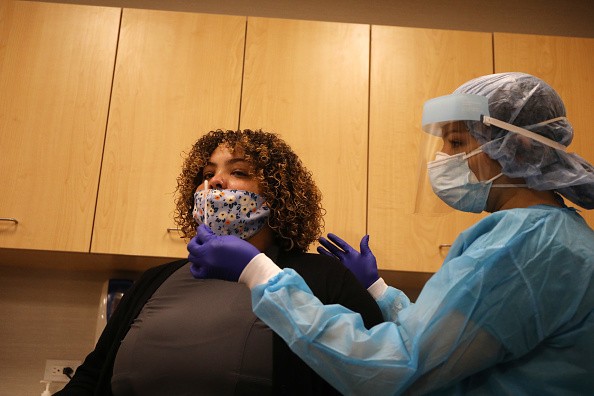Next Stimulus Package Must Include Healthcare Price Transparency
The next stimulus package targets to assist the American people in a way that will ease their burden regarding their expenses. But aside from parents and unemployed beneficiaries, the COVID-19 relief package must also consider people who suffer from unmanageable medical bills. That's why President Trump highlighted healthcare price transparency during his acceptance speech at the Republican National convention (RNC), which is a vital reform.
The coronavirus pandemic has revealed the healthcare price transparency problem wherein not all Americans are ready to seek healthcare, especially not knowing the cost of COVID-19 testing and treatment. The hesitance comes as they are afraid of the medical bills they could not resolve.
According to a Gallup poll, one in six respondents avoids COVID-19 medical care, even if the person is symptomatic because of the cost concerns.
Meanwhile, according to a recent McLaughlin Group survey, about one-half of Americans avoid medical care for fear of problematic fees. For most of those who underwent the study, unknown healthcare prices have become a financial and public health threat.
According to Townhall, the Trump administration issued new rules last November to provide all healthcare consumers with price certainty by requiring health insurers and hospitals to disclose their discounted cash prices and secretly negotiated rates. Besides, the U.S. Senator Mike Braun (R-IN) proposed the Healthcare Price Transparency Act, which is co-sponsored by the group of Senators, including Chuck Grassley, Senate Finance Chair (R-IN). The Act would arrange the rules legislatively and will restore trust in the U.S. healthcare system.

One of the most significant contributors to the increasing healthcare cost is the confusion over healthcare prices. The problem has grown by more than 250% since the year 2000, adjusted for inflation, and has cost the U.S. almost $4 trillion yearly. Healthcare consumers are vulnerable to price cut and overbilling when they are unaware to the actual prices before the healthcare.
Price transparency is vital to reduce the costs that disproportionately burden the working poor. Simultaneously, the economic and empirical evidence claims that healthcare price transparency can minimize healthcare costs by 30-50%. Last year, a study published by economists Larry Van Horn and Art Laffer showed that cash prices for healthcare are, on average of nearly 40% less expensive than rates that insurers pay.
A low healthcare price will boost the economy when it's needed most. With less money consumed by the healthcare system, patients will have enough funds to spend locally. The employers will also have high net earnings to rehire American workforce, raise wages, and restart the American economy.
Local and state governments can dedicate more of the budget to more effective services. COVID-19 patients can get tested and treated immediately without worrying about the bills showing up in their email and months later with healthcare price certainty.
Healthcare price transparency is commonly fit for the forthcoming stimulus package of Congress because of these economic benefits. Aside from fixing the American healthcare if the next stimulus package includes it, the reform will also change the economic recovery to the point where the U.S. will emerge stronger than ever.
Check these out:
Second Stimulus Check: Parents in This State Will Soon Receive More Cash
Subscribe to Latin Post!
Sign up for our free newsletter for the Latest coverage!
© 2026 Latin Post. All rights reserved. Do not reproduce without permission.















